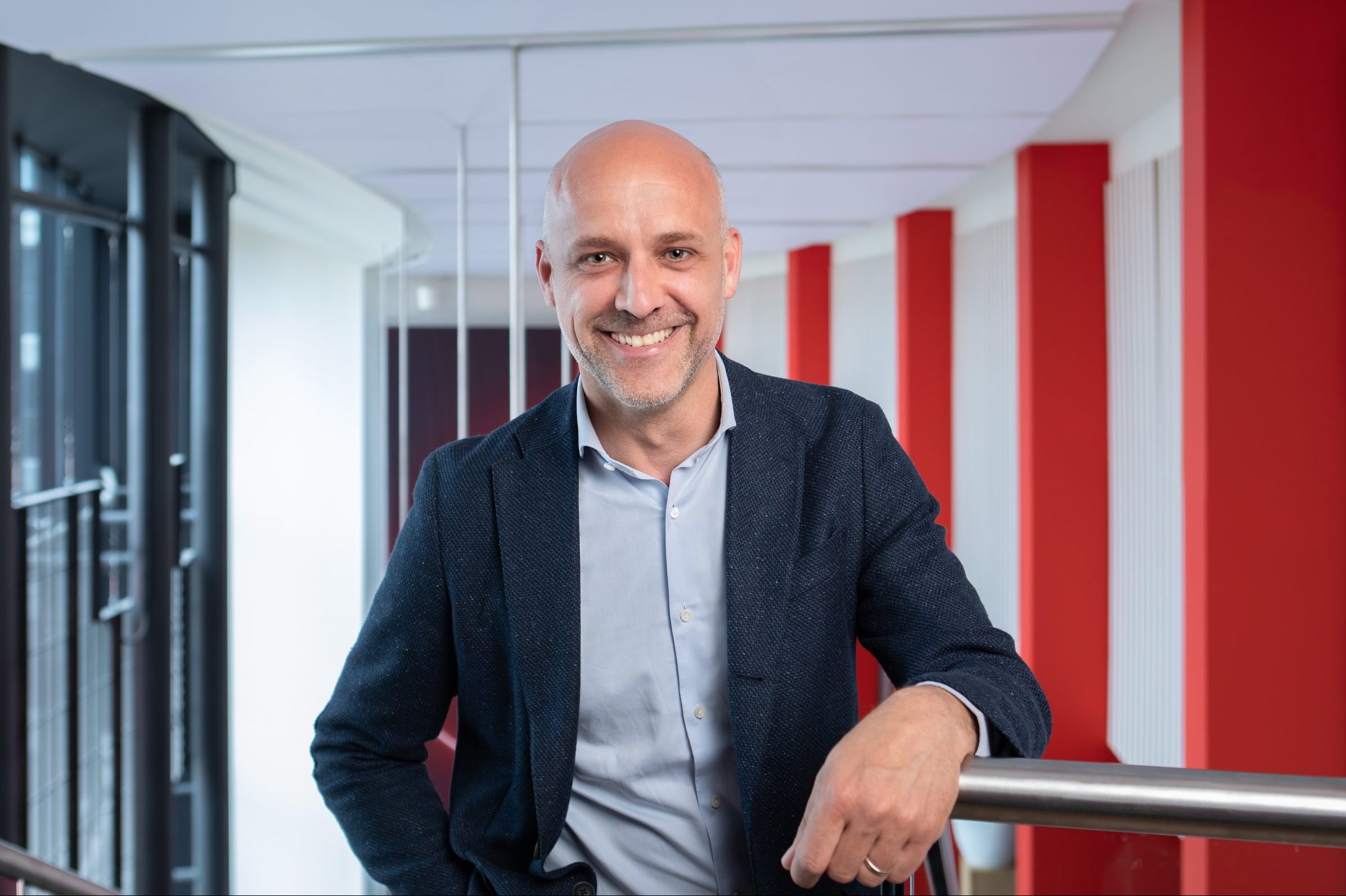One of the trials achieved peak download speeds of 2.8Gbps at a London football ground with a capacity of 20,000.
- The successful trial paves the way for high-speed and high-capacity connectivity services in complex scenarios, such as Fixed Wireless Access for home broadband and addressing mobile network congestion in busy locations.
- The Fixed Wireless Access trial (wireless home broadband) took place in Newbury. Here, mmWave technology is used to provide a ‘fibre-over-the-air’ experience for Vodafone customers, delivering home broadband connectivity peak speeds of up to 4Gbps.
- Second test scenario focused on providing enhanced capacity to Vodafone customers in crowded public venues such as stadiums, concerts, and transport hubs, where mmWave technology can help in alleviating network congestion. The trio of partners successfully achieved 2.8Gbps downlink peak speeds at a London football ground with a capacity of 20,000.
Vodafone, Qualcomm Technologies Inc. and Ericsson have successfully demonstrated the benefits of Millimetre wave (mmWave) through two trials in the UK.
5G mmWave technology uses a higher frequency than the airwaves that connect our devices today, meaning it offers faster data speeds, increased capacity, reduced latency, and enhanced network performance. The trials made use of Ericsson’s AIR (antenna-integrated radio) 5322 and Baseband 6651 technology, as well as various devices powered by the Snapdragon® X65 5G Modem-RF System.
5G and health: Everything you need to know
There has been a lot of misinformation posted on social media about 5G in relation to human health. Watch our videos and read our Q&A guide to find out the facts.
mmWave frequencies also enable more devices to be connected simultaneously without experiencing network congestion and present a future platform for innovative applications and services.
With data consumption increasing more than 30% year-on-year due to the increasing number of devices connected to the network, and consumers using more data–rich applications on their smartphones, there is an on-going risk of network congestion. Vodafone is exploring how 5G high-band frequency spectrum can help improve the customer experience.
Transforming the mobile network to offer fibre-like speeds
The first trial focused on how the higher download and upload speeds of mmWave spectrum can help deliver fibre-like speeds and home broadband services over the airwaves without the need for extensive underground infrastructure deployment. Below are some key findings from the Newbury location using full spectrum bandwidth (800 MHz of mmWave spectrum).
Within 100 metres of the mast, the devices (from Askey and ZTE as well as a MiFi from Netgear, powered by the Snapdragon X65 5G Modem-RF System) were able to achieve peak download speeds up to 4Gbps and 500Mbps for uploads.
At a range of 400 metres, the peak download speeds were 2.3Gbps and 200Mbps for uploads.
At the edge of the coverage zone (up to 700 metres), the peak download speed was 500Mbps. Latency was found to be 4-5 times lower than existing 5G capabilities.
5G: Everything you need to know
If you have questions about 5G, from Standalone to mmWave, then our regularly updated guide has the answers.
In addition to the home broadband use case, the higher upload speeds could be used to wirelessly connect cameras and broadcasting equipment to provide a more cost effective and flexible solution for media companies to cover events that might not be feasible today.
Reducing network congestion in hotspots
The second trial took place in a London football stadium, to address network congestion. With a stadium capacity of 20,000 people, the club’s fans can often experience network congestion due to the large, concentrated number of devices trying to connect at the same time.
The higher capacity of mmWave spectrum can help connect more people simultaneously, to improve customer experience. Using a commercial Snapdragon–powered smartphone, the trial registered peak download speeds up to 2.8Gbps at various points with unobstructed views of the mast, and even 500Mbps for locations that didn’t have a direct line-of-sight.
Besides high-capacity use cases, mmWave technology would be ideal for businesses with low latency use cases such as factory automations, robotics and automobiles, remote assisted training, and surgery.
How the 5G GigaCube is keeping surgeons and gamers connected
From living rooms to operating theatres, 5G-powered routers like Vodafone’s GigaCube can provide fast and reliable internet connections – a potential lifeline where traditional fixed-line broadband isn’t available or isn't fast enough.
Andrea Dona, Chief Network Officer, Vodafone UK, said: “While mmWave is a niche technology for mobile network operators in the UK, the uplift to customer experience will be incredible. With installations on a small number of sites, millions of people could benefit multiple times per week. This trial demonstrates how we can significantly improve customer experience by strategically targeting today’s challenges.”
Dino Flore, Vice President, Technology, Qualcomm Europe, Inc. said: “We are excited to collaborate with Vodafone and Ericsson to showcase the transformative potential of mmWave technology. The trials in the UK demonstrate the significant capacity and speed improvements that mmWave offers, enabling ultra-fast and reliable connectivity experiences, whether at home or in a stadium.”
Evangelia Tzifa, Chief Technology Officer, Networks & Managed Services, Ericsson UK and Ireland, said: “Our successful trials with Vodafone and Qualcomm demonstrate the potential of mmWave technology to revolutionize connectivity experiences. With the ability to deliver fiber-like speeds, and support for massively dense traffic environments, such as stadiums, mmWave opens the door to transformative connectivity experiences for mobile users, as well as new advanced use cases across various sectors.”
While mmWave is a niche technology for mobile network operators in the UK, the uplift to customer experience will be incredible. With installations on a small number of sites, millions of people could benefit multiple times per week. This trial demonstrates how we can significantly improve customer experience by strategically targeting today’s challenges.
Andrea Dona, Chief Network Officer, Vodafone UK
Moving up the spectrum frequencies
Telecommunications companies generally use a wide range of spectrum frequencies to connect devices to the wider network. The characteristics of each frequency vary, therefore the benefits and considerations also do.
The higher the frequency of the spectrum in use, the more data it can carry (both volume and speed), but there is a compromise on coverage distance. Lower frequency spectrum carries less data, but it offers greater coverage and is better able to penetrate obstacles.
mmWave is higher frequency than anything which connects consumer devices in the UK today. Ofcom is currently preparing to award the spectrum.
Vodafone believes mmWave frequency spectrum can be utilised in a small number of locations which would have a significant impact on customer experience. Thanks to its characteristics, it can alleviate network congestion in busy areas (for example, the concourse in train stations) and also connect high-volume data use cases (for example, fixed wireless access for home broadband). In both of these examples, the equipment can be strategically placed to negate the impact of obstacles on the airwaves and connect a significant number of people simultaneously.
Stay up to date with the latest news from Vodafone by following us on LinkedIn and Twitter/X, as well as signing up for News Centre website notifications.
-Ends-
Notes to Editors
What is Fixed Wireless Access?
Fixed Wireless Access (FWA) is an alternative way of delivering home broadband services. Instead of running copper or fibre optic wires all the way to the customer premises to connect the router to the internet, the router is connected to the nearest mobile phone mast. Data is transferred from the customer’s router to the wider network over airwaves rather than through the wires.
Why can’t I use my phone in busy places?
There could be a variety of reasons why your phone might not work as quickly as normal, but one which is often overlooked is the number of devices that are attempting to connect to the same mobile site.
Qualcomm and Snapdragon are trademarks or registered trademarks of Qualcomm incorporated. Snapdragon and Qualcomm branded products are products of Qualcomm Technologies, Inc. and/or its subsidiaries. Qualcomm patented technologies are licensed by Qualcomm Incorporated.





